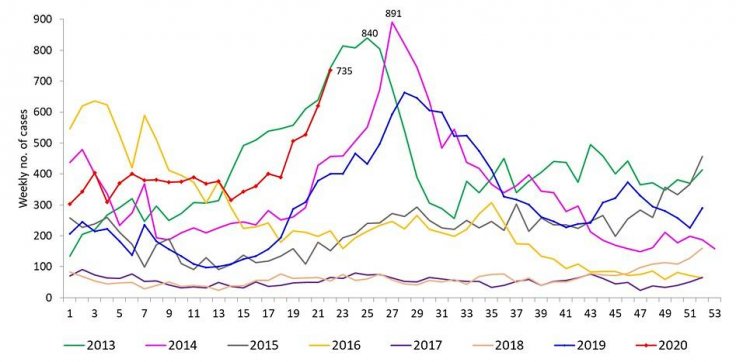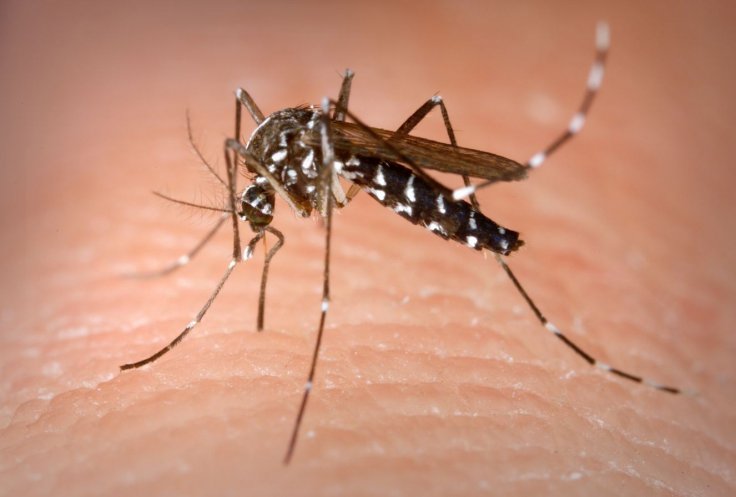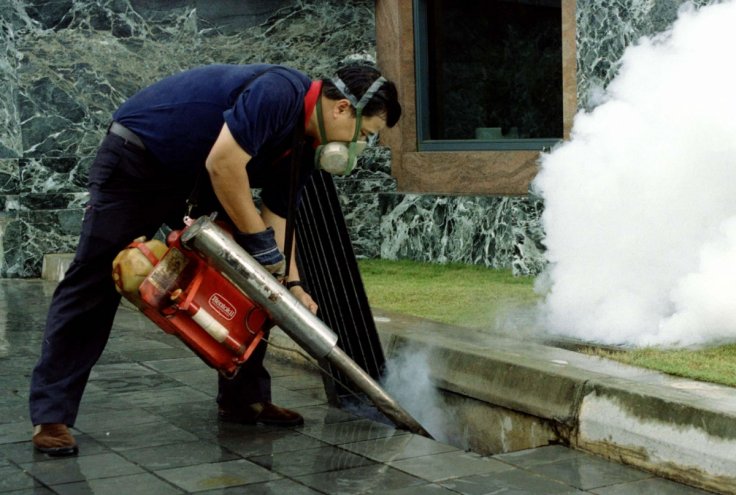As the lockdown eases and people have begun to return to normalcy from the Coronavirus pandemic, another virus has been upping its ante in Singapore. In recent times, dengue fever has seen a massive spike in cases.
With 895 cases in just five days alone — highest since 2014 — the total reached 10,732 as per Singapore's National Emergency Agency while 12 died from it. It meant that the mosquito-borne disease also surpassed its historic high of 891 weekly cases 2014 in 2014. As it stands, the number of infected people could exceed 22,170 reported cases of 2013.
The agency already warned that the cases could increase with June-October being the peak dengue season. The authorities are already taking measures in containing such cases. "Singapore has not seen such a high weekly number of dengue cases since the peak years in 2013 and 2014," the NEA said.
"The traditional dengue peak season could last for a few months, from June to October, thus immediate action must be taken to break disease transmission," it added.

Is Lockdown the Reason?
With partial and full lockdown in effect in various parts of Singapore due to COVID-19 pandemic, the larvae of the Aedes aegypti mosquito bred freely in stagnant water in closed-down places like schools, restaurants, idle factories and construction sites. The NEA asserted as it observed a five-fold increase in the mosquito larvae in residential areas during the circuit-breaker period.
"The highest percentage of mosquito breeding found in homes in the top five dengue cluster areas was 84 percent," the NEA added.

In addition, more people staying at home helped the mosquito breed in residential areas. Associate Professor of Infection and Immunity Dahai Luo from Nanyang Technological University believes that it has to do with the 'blood meal' in which the female mosquito sucks blood to produce eggs.
"Warmer weather and rainy days since the beginning of this year favor mosquito breeding across the country," Luo told media. "Circuit breaker due to COVID-19 is another likely factor, making this year's situation worse. When more people stay at home all day, there could be more residential mosquito breeding and more opportunities for 'blood meals'," he added.

Change in Virus Strain
However, not all agree with the circuit-breaker theory. Some experts believe that change in the strain of the dengue virus is responsible for the increase in cases. Previously, DenV-1 and DenV-2 of the virus were responsible for the disease. But with a low number of dengue cases over the last few years, the virus developed into DenV-3 strain, causing a surge in the cases.
With each infection, the body develops immunity against the serotype of the virus and it becomes herd immunity when more and more people get exposed to it. There are four strains of the virus with DenV-4 being the other one.
Associate Professor Alex Cook, an epidemiologist at the National University of Singapore's Saw Swee Hock School of Public Health, told the media that people must take necessary precautions to "avoid two outbreaks at the same time".
"For those of us who are spending more time at home due to the ongoing restrictions due to Covid-19, it would be wise to take extra precautions against dengue, especially removing stagnant water from around the household and common corridor," he added.









